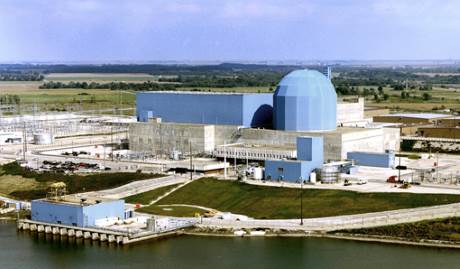The Clinton nuclear power plant is committed to operate until 31 May 2017 after clearing the regional transmission organization's annual capacity auction, but US utility Exelon Corporation warned that the plant is still potentially facing early retirement.
 |
| The single-unit Clinton plant in Illinois (Image: Exelon) |
In a statement, Exelon said that the single-unit 1065 MWe boiling water reactor continues to lose money and will have to close unless market and energy policy reforms are implemented. A decision on its future operations beyond May 2017 will be announced this year, it said.
"Without urgent action on the policy front, we will have no choice but to prepare for a potential early retirement in the face of continued financial losses at our Clinton nuclear plant," Exelon president and CEO Chris Crane said. He said that the loss of the plant would have significant economic impacts on southern Illinois and make it harder and more expensive for the state to meet its carbon reduction goals. A study by the state of Illinois has found that closing Clinton would cause the region's wholesale energy prices to rise by $236 million annually and raise carbon emissions by 8 million tonnes per year.
The short-term nature of deregulated electricity markets have left some US nuclear power plants at risk of premature closure for economic reasons, despite their long-term future and their potential contribution to achieving greenhouse gas emissions targets. Earlier this month, Entergy announced that its Pilgrim plant in Massachusetts will close permanently in May 2019, while its FitzPatrick plant in New York State is to close in January 2017.
Market reforms and legislation to enable low carbon energy sources to compete on an equal footing have been suggested as ways of addressing the issue. In 2015, the Illinois Senate Energy and Public Utilities Committee passed legislation establishing a Low Carbon Portfolio Standard to reduce carbon emissions, increase renewable energy and maintain a stable and secure electricity supply in the state, allowing all low carbon energy sources to compete equally.
Clinton is one of five Exelon units in the state of Illinois that are facing the possibility of premature closure due to profitability issues. In October 2015, the company said that it would defer any decision on Clinton's future operation for a year after the Midcontinent Independent System Operator (MISO) regional transmission organization acknowledged the need for changes to the design of the southern Illinois electricity market.
MISO's next annual capacity auction, covering planning year 2017-2018, will be held in late March 2017.
Researched and writtenby World Nuclear News




_87299.jpg)
_52351.jpg)








